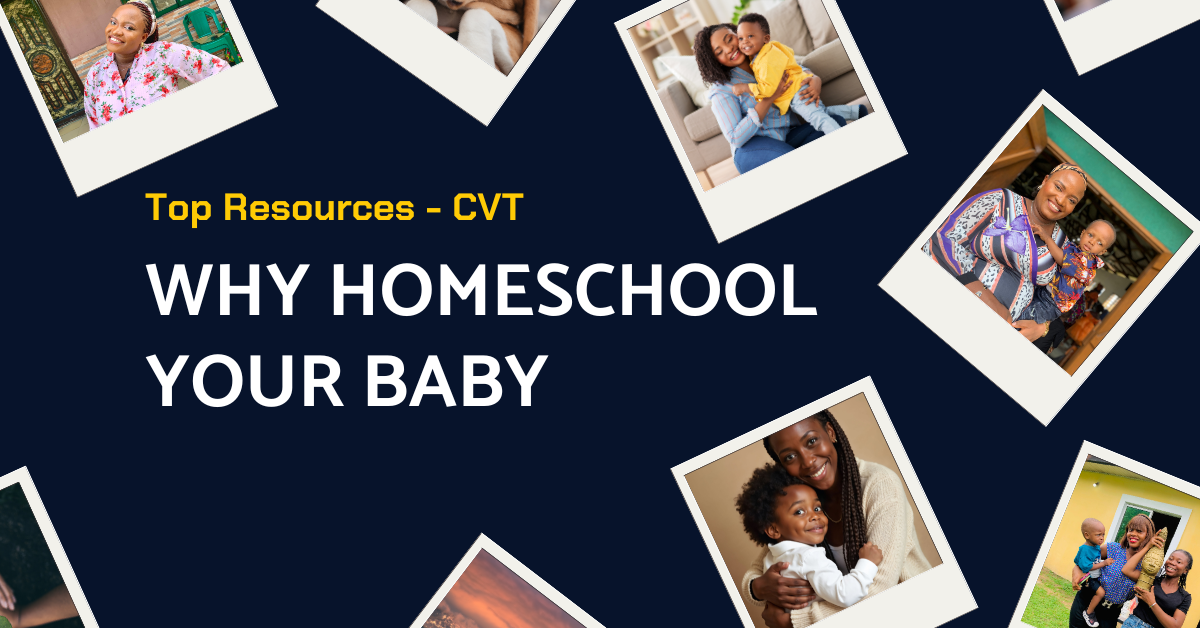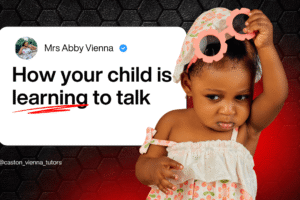
Why You Must Homeschool Your Baby
A scholar named Frederick Douglass said, “It is easier to build strong children than to repair broken adults.”
All too often, almost everywhere we turn, we see broken adults. Too many to repair. Why? Why are there so many broken people? The answer is simple. No mama, no papa. Okay, the answer is not that simple. But let us get a start. You would agree with me and many of us at Caston Vienna Tutors that being a mama or a papa is more than birthing a child. It involves the many sacrifices that you have to make and the many things you have to give up to be there for your child.
In this blog, I will be helping you see why you should homeschool your baby. And why you should not think of daycare, or abandoning them.
Key Points
- Research suggests that homeschooling babies can significantly enhance their cognitive and emotional development compared to daycare or waiting until school age, due to personalized parental involvement.
- It seems likely that early parental engagement fosters stronger brain development and emotional bonds, critical in the first few years of life.
- The evidence leans toward homeschooling offering unique benefits, like tailored learning and attachment, though daycare can provide socialization opportunities.
Intentional Early Learning at Home is Vital
Your child will be learning things the moment they are born. But that is not when they start learning. Research shows that babies learn voices, languages, music, food preferences, and even emotions from when you are 24 weeks pregnant! If you have not started teaching them when they’re still in the womb, the second best time is now. Why? You see, every sight, sound, touch, and interaction your newborn has shapes their rapidly developing brain. The brain is not like teeth. It will not shed and regrow anew. It will be the form it takes forever, and what you choose to allow them to experience will shape it.
Therefore, instead of abandoning your child, or putting them in front of a screen, be intentional. Help them learn. And no. The answer may not be daycare. Let’s talk a little about daycare.
The Worst Kind of DayCare – When is Day Care Good?
Speaking of which, research shows that daycare can be a valuable option for baby development, particularly when it offers high-quality care. What is high-quality care? Studies like the NICHD Study of Early Child Care and the Cost, Quality, and Child Outcomes Study highlight that better adult-child ratios, trained caregivers, and stimulating environments are linked to improved cognitive skills, such as language development and problem-solving.
What is the recommendation? Worst case scenario, in a high-quality daycare, there should be a ratio of 1 adult to 3 children, the adults must be trained early years specialists, and the environment must clean, stimulating and filled with fewer distractions. Especially NO TV! And for no reason should you leave your child in a daycare for more than 20-30 hours a week.
If you take your child to a daycare without these in place, you are doing your child more harm. In this table, you will see the negative effects of using bad daycare.
See this table:
| Domain | Effect of High-Quality Daycare | Effect of Extensive Hours (20-30+ hours/week early) | Key Studies |
|---|---|---|---|
| Cognitive | Positive, with better academic achievement, persisting into adolescence | Minimal direct impact, but may dilute home effects | NICHD-SECC ( PMC), Duncan et al. (2003) ( DOI) |
| Social | Positive, with improved social competence and peer interactions | May reduce social competence, increase conflict with peers | Peisner-Feinberg et al. (2001) ( DOI), Child-encyclopedia ( Encyclopedia) |
| Emotional | Positive with quality, fewer problem behaviors | Risks include insecure attachment, problem behaviors, persisting into adulthood | Risks include insecure attachment, problem behaviors, and persisting into adulthood |
So what should you do? Homeschooling! Face it. You can’t abandon your baby. You should not take them to just any daycare, as they may not give high-quality care. Homeschool them.
Benefits of Early Homeschooling For Babies
If you come to us to help you teach your newborn, we will advise you to come back when they are 10 months old. Why? Is it bad to have lessons with newborns? NO! It is perfect. However, we want that lesson to be from you. You are the primary caregiver of that child, and the child must learn from you. They must see you as their mother.
Scholars say this will boost the child’s cognitive growth. That is the part of their brain that helps them think. Studies show that activities like reading and playing together with mummy or daddy will stimulate curiosity, setting the stage for better academic outcomes later. This is particularly important before age 4, when the brain is developing fast.
Teaching your baby yourself fosters a nurturing environment where your baby can develop secure attachments, helping them understand themselves and others. We cannot say the same for daycare. Your baby may lack the individualized care parents provide at home if you drop them off at a daycare and leave them there for long. What if you just wait until their 3? That risks you missing these critical early years. You will potentially leave gaps in the baby’s development.
The Importance of Early Childhood Development
The first few years of your child’s life are vital for brain development. And when you are involved, you can enhance the development. For instance, you must read, play, and work together with your child. It will stimulate curiosity. It will help your child get smarter in school later. A 2022 literature review published in PMC, titled “The Effect of Parenting and the Parent-Child Relationship on a Child’s Cognitive Development: A Literature Review,” observed that a facilitative environment, driven by parental engagement, is required for children to mature cognitively, with emotional regulation beginning to develop in the first year and rapidly advancing in subsequent years (PMC).
Another aspect is the baby’s emotions. When you are around, your child can find it easy to regulate. A 2024 article in Frontiers in Psychology, emphasizes that early interactions with parents are critical for children under 4 to understand themselves, others, and the world. Without this, they will continue to have tantrums even as adults. They will get offended by everything. They will blame everything bad on their parents and their star sign. Never taking responsibility.
The Inspiring Opportunity of Homeschooling
Homeschooling babies is not just about education. It’s an inspiring journey where every lullaby sung, every story read, and every moment shared becomes a building block for a brighter future. It allows you to tailor experiences to your child’s unique needs. That will foster a sense of safety and curiosity that prepares them to face the world with confidence.
If you need help and don’t know where to start, we can help. We have a program that helps parents get a full DIY homeschooling package specifically to help their child. This program is with our head teacher. She will give you guided fun activities you can do with your child and help you with any questions you have along the way. It is called the Perfect Parenting Package.
Key Citations
- Parental influence on child social and emotional functioning
- The Effect of Parenting and the Parent-Child Relationship on a Child’s Cognitive Development: A Literature Review
- Impact of Parenting Style on Early Childhood Learning: Mediating Role of Parental Self-Efficacy
- Does Parent Involvement Really Help Students? Here’s What the Research Says
- Do Effects of Early Child Care Extend to Age 15 Years? Results From the NICHD Study of Early Child Care and Youth Development (PMC)
- Another Perspective on the Latest Research on Early Child Care (Institute for Family Studies)
- Measuring the Long-Term Effects of Early, Extensive Day Care (Institute for Family Studies)
- Child care and its impact on young children (Encyclopedia on Early Childhood Development)
- Modeling impacts of child care quality on preschool cognitive development (DOI, PubMed)
- The relation of preschool child-care quality to children’s cognitive and social developmental trajectories through second grade (DOI, PubMed)
- Variations in early child care: Do they predict subsequent social, emotional, and cognitive differences (Google Scholar)
- Child care quality matters: How conclusions may vary with context (DOI, PubMed)


